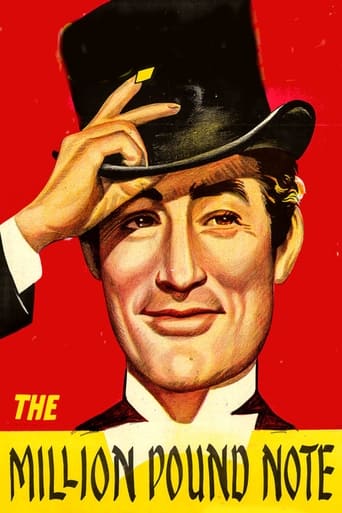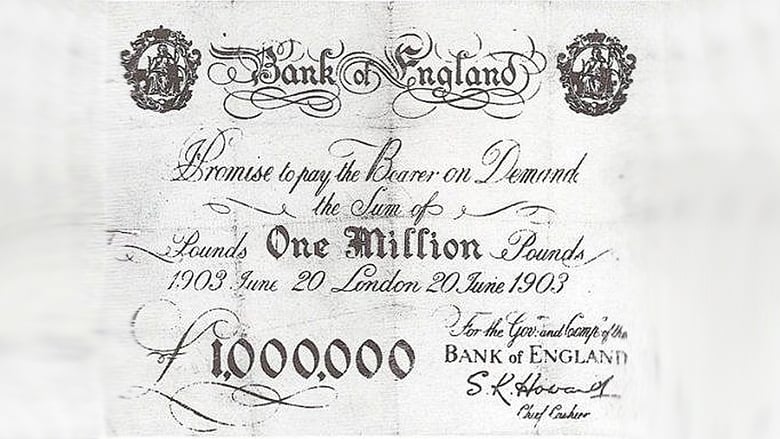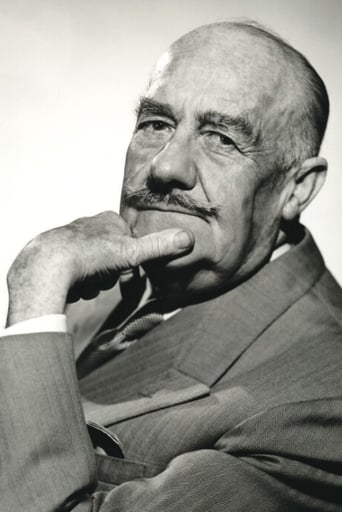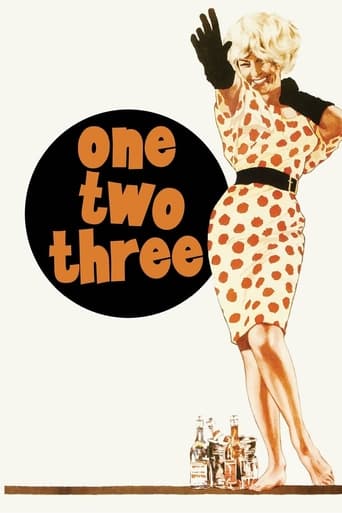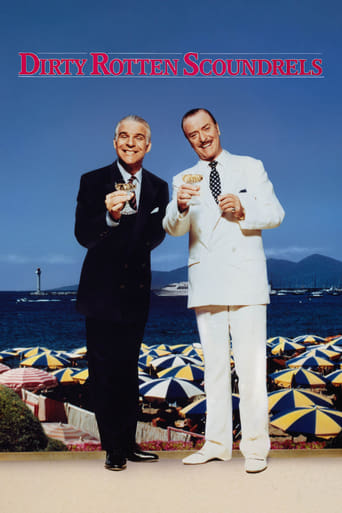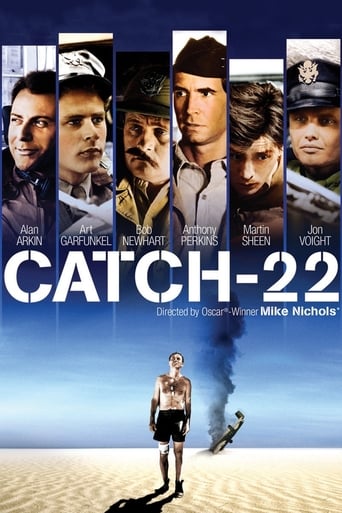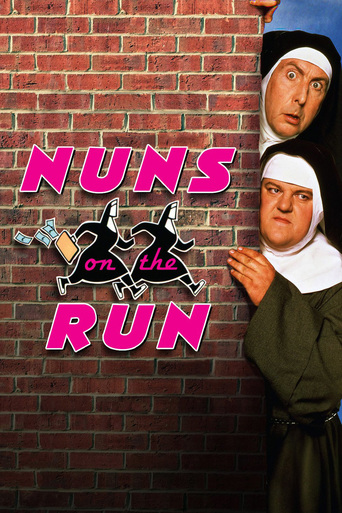The Million Pound Note (1954)
An impoverished American sailor is fortunate enough to be passing the house of two rich gentlemen who have conceived the crazy idea of distributing a note worth one million pounds. The sailor finds that whenever he tries to use the note to buy something, people treat him like a king and let him have whatever he likes for free. Ultimately, the money proves to be more troublesome than it is worth when it almost costs him his dignity and the woman he loves.
Watch Trailer
Cast


Similar titles
Reviews
I like the storyline of this show,it attract me so much
As somebody who had not heard any of this before, it became a curious phenomenon to sit and watch a film and slowly have the realities begin to click into place.
The movie's neither hopeful in contrived ways, nor hopeless in different contrived ways. Somehow it manages to be wonderful
Actress is magnificent and exudes a hypnotic screen presence in this affecting drama.
I do so love films that take a poke at British subservience, arrogance, and pomposity. None so better that this film.The late Scottish poet Robert Burns, coined a phrase that went something like this."oh the power be us, to see ourselves as others see us". Naturally this is my own version of what Robbie Burns said.The Million pound note observed what still is British pomposity, British arrogance, and British subservience, to a tee.Gregory Peck is perfect in the role of the American one and all begin bowing and scraping to, just because he has a bank note for one millions pounds in his pocket.The status of having money, owning "one's own home", the status of middle America, and middle England are all there in this film.How we look up to the green stuff was endorsed positively by Thatcher and Reagen, but this worship has always been there. And how we look down on those who "appear" to have nothing, is there for all to see.Yes, this means, you.
I watched this movie after reading Mark Twain's novel. The novel is good, typical Mark Twain's style: simple and sharp. But make a full-length movie from such a short story is not doing more than it can. Therefore the first two-thirds of the movie seems rather silly. For example, the note being windblown scene is naive. And the movie's changing the inventor of the idea of selling the mine using Henry's name form Henry to Lloyd really annoyed me. However, from that onwards the last one-third part of Henry missing the million pound note was really a U-turn and lifts the whole movie a level up. This is a good original idea and it does save the movie largely.
Oliver and Roderick Montpellier, two English brothers, make a bet that any man given a one million pound note, can live off the fat of the land just by showing off the good fortune of having it in his possession. Then, if by the end of a month, if he can show the intact bill, he will indeed be a man worthy of whatever fortunes might befall on him because of the sheer luck of proving the brothers right.The lucky recipient of the note is one Henry Adams, an American in London who is just a poor man with no money, or prospects of a job in the near future. He tests his good fortune when he decides to dine at a modest restaurant. As the bill comes, he shows his one million pound note, which of course, the owner can't possibly change. The meal is free.Henry Adams then discovers how he can go through his present situation relying on the fact that he is a millionaire, without really being one. He is given a set of smart clothes, a suite at one of the best hotels in town, and an introduction to high society, something that is not always available to Americans, even rich ones, as Henry appears to be.This delightful comedy of 1954 was a total surprise. The film, made in England at the famous Pinewood studios, was directed by Ronald Neame. Based on a Mark Twain story, which we haven't read, it counts on the great work of Gregory Peck, a man that was one of the most charismatic performers during his years in the cinema. Mr. Peck is the whole movie; it's unimaginable to think of any other actor playing Henry Adams.The supporting cast shows familiar faces of consummate English players who contribute to create the Edwardian atmosphere. Ronald Squire and Wilfrid Hyde-White are the Montpellier brothers, whose bet trigger the action. Reginald Beckwith is the mute valet who sticks by Henry through thick and thin. Jane Griffiths plays Portia, the woman that conquers Henry Adams heart. Also in the cast we saw Hugh Griffith, in a non-credited role. Joyce Grenfell, another delightful character actress, has some brilliant moments as the Duchess of Cromarty.An enjoyable movie. Catch if it ever plays on your classic movie channel. You won't be disappointed!
Arriving home, with a long day of work behind me, and another ahead, I was in the mood for something friendly and undemanding. Ronald Neame's 'The Million Pound Note (1953)' was exactly what the doctor ordered. This lightweight British comedy is, for one, wholly and absolutely pleasant: notice how there is not a single villain in the entire film, every character likable in their own, distinctively-British way. The old family friend, whom we are certain is a grumbling and untrustworthy shyster, turns out to be an honest entrepreneur. The man who arranges to deprive Henry Adams (Gregory Peck) of his wealth is merely a doddering old eccentric who just wants to show some patriotism for a personal lark. This is the sort of film whose conclusion is never in any doubt: Peck will get the girl, achieve happiness, and learn to live without the extravagance to which he thought he would become accustomed. Frankly, I can't imagine the film ending any other way.When penniless American stowaway Henry Adams (Peck, probably on his way to Italy to film 'Roman Holiday (1953)') requests a small loan from the US embassy in London, he is flatly denied by an indifferent official. However, a pair of childish millionaires (Ronald Squire and Wilfrid Hyde-White) have an even greater plan for him. They loan Henry a rare million pound note, which he is forbidden to cash in, for just a one month engagement. Pretty soon, every store and hotel owner in the city is tripping over themselves to offer him free services, irrationally smitten with the honour of serving a wealthy American, however unorthodox his dress manner may be. Of course, the arrival of "millionaire" Henry Adams doesn't go unnoticed in the high societies of London, and Portia Landsdowne (Jane Griffiths) is soon love-struck with the humble American, though his apparent wealth hinders rather than aids their love affair. Will the couple be together by the film's end? You don't need me to tell you.Though I had expected 'The Million Pound Note' to be a slightly wooden comedy, it was great to find the film regularly inciting a hearty chuckle. Two moments stand out above all the others. Firstly, Gregory Peck opening the brothers' envelope for the first time to pay for a hearty meal, and dazedly apologising for not having anything smaller (the store-owners accept Henry as an "eccentric millionaire" and offer the meal for free). Secondly, the charity auction event in which the famous American millionaire carefully counts the coins in his hand to bid £82 12s, before inadvertently bidding £5000 for a rather commonplace vase. As lightweight as it may be, the film also aims a few modest jabs at the superficiality and hypocrisy of British society, most of the characters welcoming Henry Adams only when under the impression that he is absurdly wealthy; there's a harsh but all-too-true irony in the fact that Henry can only secure a cash loan once the American embassy believes that he doesn't need it.

